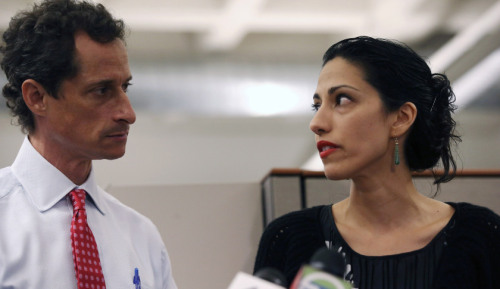Here’s a question for anyone who skews left in the early 21st century: if you could moderate or eliminate global warming without paying the slightest attention to “social justice” issues, would you do it?
From the looks of the passionate responses to Washington state's Initiative 732, on the ballot in a week, for many on the left, that answer would be a resounding NO.
But not all leftists agree, leading to a lot of interesting discussion. No matter what happens on Election Day, I think this split between left pragmatists and social justice activists will become more visible. It’s really worth debating.
I-732
I-732 is a ballot initiative in Washington that would impose a carbon tax on fossil fuels, and then return that money against sales tax, corporate taxes, and tax credits to ensure that poor people who would be disproportionately affected by a tax that increases their heating and transportation costs get their money back.
It’s clear, simple, and would allow for a straightforward proof of concept (a similar law has been in effect in British Columbia for a few years): does it lower carbon emissions efficiently without causing harm?
What’s not to like, then?
And a pony
The Sightline Institute recently wrote several articles covering the issues involved in the I-732 debate. In the initial article, Weighing CarbonWA’s Tax Swap Ballot Initiative, they encapsulated the issue for all of us:
At Sightline we believe that climate policy must be effective and fair, not only cutting climate-warming pollution and putting us on track toward clean air and clean energy, but also building a more just and equitable society.
In other words, a climate policy agenda is held hostage to a completely separate agenda. I happen to think that both agendas are important. I just don’t think they should be linked together. You should be able to do something about global warming without being responsible for other societal issues, unless your global warming solution negatively affects someone specific, in which case you should ameliorate that disparate impact.
That said, I think the Sightline series is thoughtful and thorough, and they were totally upfront about their position and goals. They are to be commended—even though I think they’re wrong in linking these two important issues.
The problems with telling the truth
Yoram Bauman, the creator of 732, was quoted by Greg Mankiw in the NY Times as saying,
I am increasingly convinced that the path to climate action is through the Republican Party. Yes, there are challenges on the right -- skepticism about climate science and about tax reform -- but those are surmountable with time and effort. The same cannot be said of the challenges on the left: an unyielding desire to tie everything to bigger government, and a willingness to use race and class as political weapons in order to pursue that desire.
Needless to say, this raised a firestorm—mostly from people desperate to prove him right.
But one sure way to minimize support from the conservative side of the aisle for a climate change initiative is to tie it explicitly to a social justice agenda. From the point of view of leftist activists, is that a bug, or a feature?
A real plan versus vague hopes
The main issue with those who oppose 732 is that they have no concrete plan of their own. They just don’t like this one, which is too simple, too self-organizing, and maybe too nerdy for their taste.
From the Sierra Club’s explanation of why they can’t support I-732:
Communities of color and low-income people are almost always the ones most impacted by pollution and climate change, and as a result they need to be at the front and center of discussions for how to address the problem and mitigate the impacts of both climate change and environmental policy. That wasn't the approach taken by I-732. As a result, the initiative fails to affirmatively address any of the stated needs of those communities: more investment in green jobs, energy efficiency, transit, housing, and renewable energy infrastructure.
I think that is a good statement of the opposing argument, and to me reveals how intellectually weak it is. It has two parts, worth looking at separately: 1) poor communities will be more affected by climate change than others, and 2) someone needs to provide specific green benefits to specific poor people for a climate change proposal to be acceptable.
Poor communities and pollution
Poor and minority communities do often live in areas with more pollutants of various sorts. Rents in those areas tend to be lower because they are less pleasant places to live. And such communities tend to have less political power when it comes to placing new environmental risks.
But the reasoning seems to be: pollution causes global warming, poor communities have more pollution; therefore poor communities will suffer more from global warming. Maybe, though it does not follow from the previous facts. Global warming is universal and widespread, not focused in certain locations. If they really will be more affected, I wouldn't mind a more explicit statement of why.
Allowing individuals to decide what a “benefit” is
A well-designed revenue-neutral carbon tax would encourage people to make choices that minimize their own carbon use. If those choices involve the creation of “green jobs” (whatever those might be), great. The other things, energy efficiency, transit, etc., will emerge from the choices people make, based on what they conclude is best for them.
The main thing is that some people want to be able to control that potential tax revenue and disburse it in a way that increases their political power. The initiative is written in such a way that this targeting is impossible. This is its political weakness: it does not pay off anyone specific, while being a visible new tax. Diffuse benefits and specific costs always cause political trouble.
I happen to think that poor communities would benefit from a well-designed carbon tax, along with everyone else.
Among arguments from 732 opponents, I particularly liked this one from Fuse, where, after a passionate discussion of how communities of color have been under-represented in environmental discussions (which is completely true) the authors have to glumly admit that they, too, are white, and presumably middle class. I do appreciate their honesty.
To its credit, Audubon Washington has come out in favor of I-732.
Massachusetts has no really interesting initiatives this year (except maybe for legalizing marijuana), so I’m sad I can’t be in Washington to pull the lever for this one.
Here’s a question for anyone who skews left in the early 21st century: if you could moderate or eliminate global warming without paying the slightest attention to “social justice” issues, would you do it?
From the looks of the passionate responses to Washington’s Initiative 732, on the ballot in a week, for many on the left, that answer would be a resounding NO.
But not all leftists agree, and, no matter what happens on Election Day, I think this split between left pragmatists and social justice activists will become more visible. It’s really worth debating.
I-732
I-732 is a ballot initiative in Washington that would impose a carbon tax on fossil fuels, and then return that money against sales tax, corporate taxes, and tax credits to ensure that poor people who would be disproportionately affected by a tax that increases their heating and transportation costs get their money back.
It’s clear, simple, and would allow for a straightforward proof of concept (a similar law has been in effect in British Columbia for a few years): does it lower carbon emissions efficiently without causing harm?
What’s not to like, then?
And a pony
The Sightline Institute recently wrote several articles covering the issues involved in the I-732 debate. In the initial article, Weighing CarbonWA’s Tax Swap Ballot Initiative, they encapsulated the issue for all of us:
“At Sightline we believe that climate policy must be effective and fair, not only cutting climate-warming pollution and putting us on track toward clean air and clean energy, but also building a more just and equitable society.”
In other words, a climate policy agenda is held hostage to a completely separate agenda. I happen to think that both agendas are important. I just don’t think they should be linked together. You should be able to do something about global warming without being responsible for other societal issues, unless your global warming solution negatively affects someone specific.
That said, I think the Sightline series is thoughtful and thorough, and they were totally upfront about their position and goals. And they didn’t get all self-important, a stylistic deformation of professional leftists. Believe me, I live in Cambridge, I’ve been a liberal all my life, I know these people. Sightline is to be commended—even though I think they’re wrong in linking these issues.
The problems with telling the truth
Yoram Bauman, the creator of 732, was quoted by Greg Mankiw in the NY Times as saying,
"I am increasingly convinced that the path to climate action is through the Republican Party. Yes, there are challenges on the right -- skepticism about climate science and about tax reform -- but those are surmountable with time and effort. The same cannot be said of the challenges on the left: an unyielding desire to tie everything to bigger government, and a willingness to use race and class as political weapons in order to pursue that desire."
Needless to say, this has raised a firestorm—from people desperate to prove him right.
One sure way to minimize support from the conservative side of the aisle for a climate change initiative is to tie it explicitly to a social justice agenda. From the point of view of leftist activists, is that a bug, or a feature?
A real plan versus vague hopes
The main issue with those who oppose 732 is that they have no concrete plan of their own. They just don’t like this one, which is too simple, too self-organizing, and maybe too nerdy for their taste.
From the Sierra Club’s explanation of why they can’t support I-732:
“Communities of color and low-income people are almost always the ones most impacted by pollution and climate change, and as a result they need to be at the front and center of discussions for how to address the problem and mitigate the impacts of both climate change and environmental policy. That wasn't the approach taken by I-732. As a result, the initiative fails to affirmatively address any of the stated needs of those communities: more investment in green jobs, energy efficiency, transit, housing, and renewable energy infrastructure.”
I think that is a good statement of the opposing argument, and to me reveals how intellectually weak it is. It has two parts, worth looking at separately: 1) poor communities will be more affected by climate change than others, and 2) someone needs to provide specific green benefits to specific people.
Poor communities and pollution
Poor and minority communities do often live in areas with more pollutants of various sorts. Rents in those areas tend to be lower because they are less pleasant places to live. And such communities tend to have less political power when it comes to placing new environmental risks.
But the reasoning seems to be: pollution causes global warming, poor communities have more pollution; therefore poor communities will suffer more from global warming. Maybe, though it does not follow from the previous facts. Global warming is universal and widespread, not focused in certain locations.
Allowing individuals to decide what a “benefit” is
A well-designed revenue-neutral carbon tax would encourage people to make choices that minimize their own carbon use. If those choices involve the creation of “green jobs” (whatever those might be), great. The other things, energy efficiency, transit, etc., will emerge from the choices people make, based on what they conclude is best for them.
The main thing is the some people want to be able to control that potential tax revenue and disburse it in a way that increases their political power. The initiative is written in such a way that this targeting is impossible. This is its political weakness: it does not pay off anyone specific, while being a visible new tax. Diffuse benefits and specific costs always cause political trouble.
I happen to think that poor communities would benefit from a well-designed carbon tax, along with everyone else.
Among arguments from opponents, I particularly liked this one from Fuse, where, after a passionate discussion of who communities of color have been under-represented in environmental discussions (which is completely true—I’m not arguing with any of those points) the authors have to glumly admit that they, too, are white, and presumably middle class. I do appreciate their honesty.
To its credit, Audubon Washington has come out in favor of I-732.
Massachusetts has no really interesting initiatives this year (except maybe for the marijuana one), so I’m sad I can’t be in Washington to pull the lever for this one.





